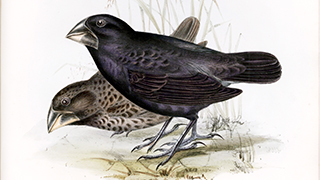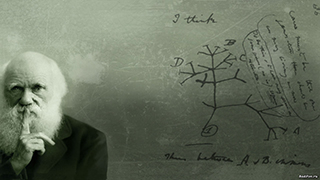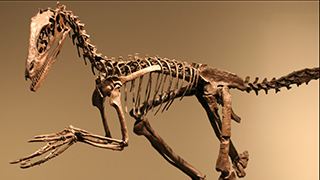MENU
The Electronic Scholarly Publishing Project: Providing world-wide, free access to classic scientific papers and other scholarly materials, since 1993.
More About: ESP | OUR CONTENT | THIS WEBSITE | WHAT'S NEW | WHAT'S HOT
Our Team

Robert J. Robbins
CHIEF EXECUTIVE OFFICER
Robert Robbins has experience in biology, education, science administration, and information technology: At Michigan State, he taught biology to thousands of university students; at NSF and DOE he served as a program officer in two federal funding agencies; as Director of the Laboratory for Applied Research at Johns Hopkins, he played a key role in developing the information infrastructure of the human genome project; and at the Fred Hutchinson Cancer Research Center he served as the VP/CIO of a major research organization. In 1993, he developed a free website (www.esp.org) that is still used by tens of thousands of students and educators world wide. In 2001, he co-founded and currently leads an organization (www.briite.org) that facilitates communication and cooperation among IT professionals at academic biomedical research organizations. Currently, Robbins is involved in several biology projects, including the UCSD-hosted, NSF-funded Research Coordinating Network for the Genomic Standards Consortium project that is intended to facilitate the extension of genomic and metagenomic data standards into fields such as biodiversity and community ecology.
206-300-3443
RJR8222 @ gmail.com

Thomas Jefferson Dog
MANAGER, INTERSPECIFIC RELATIONS
Tom is our go-to partner for just about everything that requires a hi-IQ canine with great person skills.
425-556-9386
iWOOF @ rj-robbins.com

Adelina Perdita Roux Robbins (Lina)
TRAINEE / INTERN
Lina is the newest member of our team. The energy and eagerness that she brings to every activity is stunning.
123-456-7890
intern @ rj-robbins.com
ESP Quick Facts
ESP Origins
In the early 1990's, Robert Robbins was a faculty member at Johns Hopkins, where he directed the informatics core of GDB — the human gene-mapping database of the international human genome project. To share papers with colleagues around the world, he set up a small paper-sharing section on his personal web page. This small project evolved into The Electronic Scholarly Publishing Project.
ESP Support
In 1995, Robbins became the VP/IT of the Fred Hutchinson Cancer Research Center in Seattle, WA. Soon after arriving in Seattle, Robbins secured funding, through the ELSI component of the US Human Genome Project, to create the original ESP.ORG web site, with the formal goal of providing free, world-wide access to the literature of classical genetics.
ESP Rationale
Although the methods of molecular biology can seem almost magical to the uninitiated, the original techniques of classical genetics are readily appreciated by one and all: cross individuals that differ in some inherited trait, collect all of the progeny, score their attributes, and propose mechanisms to explain the patterns of inheritance observed.
ESP Goal
In reading the early works of classical genetics, one is drawn, almost inexorably, into ever more complex models, until molecular explanations begin to seem both necessary and natural. At that point, the tools for understanding genome research are at hand. Assisting readers reach this point was the original goal of The Electronic Scholarly Publishing Project.
ESP Usage
Usage of the site grew rapidly and has remained high. Faculty began to use the site for their assigned readings. Other on-line publishers, ranging from The New York Times to Nature referenced ESP materials in their own publications. Nobel laureates (e.g., Joshua Lederberg) regularly used the site and even wrote to suggest changes and improvements.
ESP Content
When the site began, no journals were making their early content available in digital format. As a result, ESP was obliged to digitize classic literature before it could be made available. For many important papers — such as Mendel's original paper or the first genetic map — ESP had to produce entirely new typeset versions of the works, if they were to be available in a high-quality format.
ESP Help
Early support from the DOE component of the Human Genome Project was critically important for getting the ESP project on a firm foundation. Since that funding ended (nearly 20 years ago), the project has been operated as a purely volunteer effort. Anyone wishing to assist in these efforts should send an email to Robbins.
ESP Plans
With the development of methods for adding typeset side notes to PDF files, the ESP project now plans to add annotated versions of some classical papers to its holdings. We also plan to add new reference and pedagogical material. We have already started providing regularly updated, comprehensive bibliographies to the ESP.ORG site.
ESP Picks from Around the Web (updated 28 JUL 2024 )
Old Science

Weird Science

Treating Disease with Fecal Transplantation
Fossils of miniature humans (hobbits) discovered in Indonesia
Paleontology

Dinosaur tail, complete with feathers, found preserved in amber.
Astronomy

Mysterious fast radio burst (FRB) detected in the distant universe.
Big Data & Informatics

Big Data: Buzzword or Big Deal?
Hacking the genome: Identifying anonymized human subjects using publicly available data.